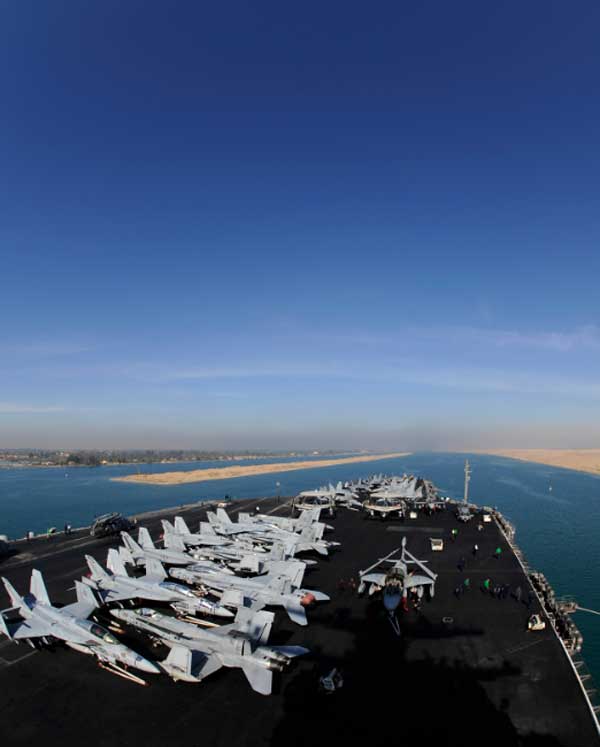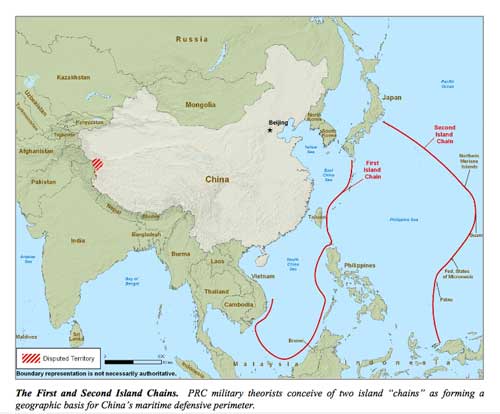Empires and Influence in the New Global Order
By Parag Khanna
Review by Robbin Laird
01/19/2011 – The author provides an overview on what he sees as the new global order for the 21st century. The book was completed prior to the global financial crisis, which clearly affects some of his core assumptions, notably about Europe.
The author provides an overview of the rise of the second world at the expense of the first. The rise of the so-called BRICS is documented throughout. The author also significantly discounts the role of geopolitics and military power in the 21st century as globalization in three variants is in conflict with one another.
The “fre-enemies” of America, Europe and China present three different visions of globalization and are seeking global dominance via their particular visions. “The United States, the EU and China represent three distinct diplomatic styles – America’s coalition, Europe’s consensus, and China’s consultation – competing to the lead the 21st century.”
In the author’s view, the US represents the past with military power having too much sway in coercing coalitions to support its interests.
In contrast, “the European Union is a revolutionary institution with the potential to reverse the westbound rotation of geopolitical centrality. As the most highly evolved form of interstate governance, the EU aggregates countries in a manner more resembling a corporate merger than a political conquest, with net gains in both trade and territory from North Africa to the Caucasus.”
Credit: Bigstock
Then the author adds the comment, “outside of the military domain, Europe’s power potential is greater than that of America, for it is the world’s largest market and the de facto standard setter for technology and regulation.”
“China has already become a global center of gravity, and it represents a third model of imperial diplomacy. Drawing on ancient Confucian customs, China’s consultative pattern of behavior emphasizes areas of greatest agreement while tabling issues lacking accord for more propitious occasions….(The Asians) have not only resigned themselves to China’s inevitable rise, they have also come to welcome the benefits that it will bring in the form of cheaper goods, more integrated markets, and regional pride.”
The author underscores that the rest of the world is more or less the stage upon which the three empires play.
“The United States, the European Union, and China already possess most of the total power in the world – and will do their best to prevent all others from gaining ground on them. Russia, Japan and India cannot assert themselves globally militarily or otherwise; they are not superpowers but rather balancers whose support (or lack thereof) can buttress or retard the dominance of the three superpowers without preventing it outright.”

The author has provided an intriguing set of hypotheses. But do the work?
The first problems with the hypotheses are rather simple: they are perhaps an accurate snapshot of the first decade of the 21st century, but certainly not beyond.
America is clearly in flux as it deals with its domestic dynamics and global relationships. And indeed its engagement in Afghanistan coupled with the stimulus spending has led to a significant reduction in its global power projection capabilities.
America under Obama has clearly shifted its tone towards the rest of the world, and whoever follows Obama will need to focus on the reality of global coalitions and relationships, not just the rhetoric.
The author consistently underestimates the innovative capabilities of the United States, and its ability to rebound from global challenges. The multi-ethnic society in the United States has built more residual innovation capability than any other Western society. Whether this innovative capacity is realized is anyone’s guess.
Europe is in crisis. The system the author describes was strategically protected by the U.S. and shaped by an ability for Western Europe to become Europe under that protection. The twin institutions of the EU and NATO were crucial to the expansion Eastward. The formation of the Euro was an expression of new continental solidarity.
But the global financial crisis raises fundamental questions about the strategic direction of the Euro and of Europe. The crisis is certainly leading to the augmentation of the role of Germany. And Germany is building much stronger relationships with China and Russia than any other European power.
The rise of the Arctic elevates the roles of Norway and Denmark and places both at the table of the riches of the Arctic over the next 30 years and directly in the path of geopolitical dealings with Russia.
The decline of the Southern European states has been significant in the past two years, and the economic decline of Eastern Europe, although not exactly the 1930s following the 1920s, raises serious questions about the viability of some of the economies in Eastern Europe.
Credit image : 2010 Annual Report to Congress on Military and Security Developments Involving the People’s Republic of China
The Chinese forecast rests on the reality of the past decade, not the next. It is highly doubtful that the Asian neighbors of China have a benign view of the Middle Kingdom. Indeed, Chinese ability to shape a global manufacturing base, hoard significant financial resources, craft a global resources policy and to begin a rapid buildup of maritime, military and global security and military capabilities has captured the attention of Europe. As China builds its hard power, it gives a different meaning to its soft power. And for many states in Asia, the U.S. remains a lynchpin power allowing it to curtail Chinese expansion. Whether the U.S. actually will play this role remains to be seen.
And totally missing from the author’s analysis is the very significant disruptive impact of other global players. European economic power is challenged directly by the BRICS. Indeed, the aging of the European population and the overinvestment in resources for the social welfare system limits significantly the ability of Europe to invest in the future, rather than to pay for the past.
And Europe is directly threatened by developments in the Middle East, ranging from missiles, terrorism, or the growth in nuclear weapons in the region. It is difficult to see Europe building a consolidated military capability to deal with these threats already here and growing in the decade beyond.
An ability to put together a missile defense shield is clearly one measure of seriousness about the threat, but this remains to be seen. And relying solely on a U.S. with significantly less power projection capability today than 20 years ago is a strategic mistake of historic proportions.
In short, the author may be right about the contest among the major “empires” for global influence, but the characterization of the decline of the United States and its reliance on militarily forged coalitions in favor of Europe’s consensus and China’s consultation significantly overstates the gains for Europe and China.
Europe lacks the security and military power to protect its own interests; and China is building theirs to protect their Empire. The continued rise of China is creating a counter-reaction globally, with recent concerns over China cornering the market on rare earth metals simply a first scene in the play for the second decade of the 21st century.
As with many analysts who consider military power dysfunctional to globalization, the author misses a central point – for globalization to work there needs to be defense of the global commons. And the states that wish to defend their interests bring maritime, air and military power to the task.
Several states not at the core of the empires will have their say in upsetting the imperial contests for global dominance. And they will do this by their own approaches to re-shaping global production, to enhancing the role of the global commodities trade, and injecting their own versions of military “black swans” which do not follow the desired trajectory of the Empires.


